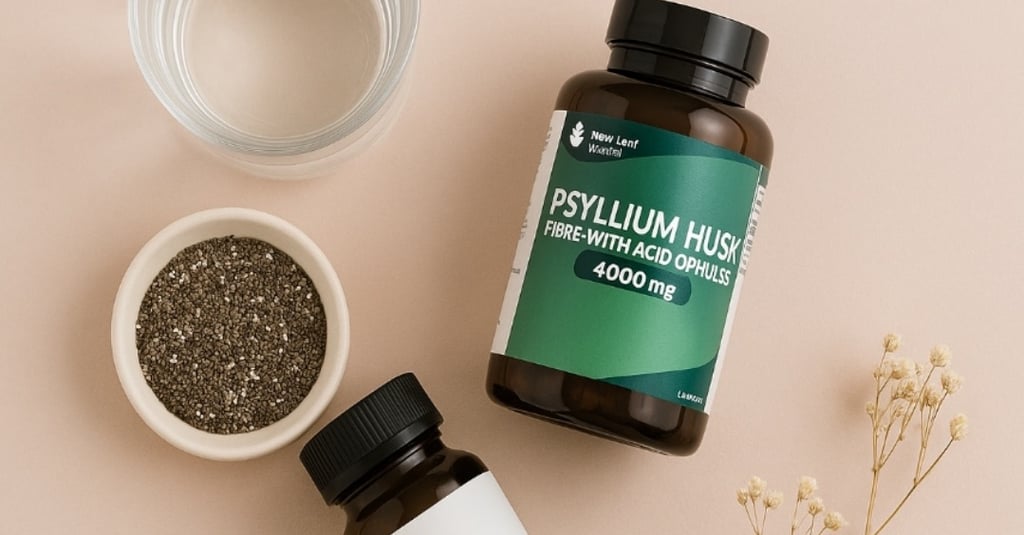Why IVF Slows Down Your Digestion — And What You Can Do About It
IVF medications often lead to constipation and slower digestion. Learn how fibre, hydration, and gentle movement can ease bloating and support gut health during treatment.
WELLNESS & FOOD


If you're in the middle of an IVF cycle and feeling bloated, constipated, or just “off” in your gut — you're not alone. Digestive changes are a very common side effect of IVF, especially during the stimulation phase and while taking progesterone after egg collection.
Here’s why your digestion might feel sluggish, and what you can do to support it — naturally and gently.
Why IVF Can Cause Constipation and Slower Digestion
IVF involves powerful hormonal changes that directly affect your digestive system:
Progesterone relaxes smooth muscle, including the intestines — slowing down how food moves through your gut.
Rising oestrogen can cause fluid retention and bloating, adding to that “heavy” feeling.
Stress and inactivity (especially after egg retrieval) can reduce gut motility.
Common IVF medications — including iron, painkillers, and progesterone — may worsen constipation.
Common Digestive Symptoms During IVF
Fewer or harder bowel movements
Bloating and trapped gas
A “full” or heavy belly, even after small meals
Discomfort or straining on the toilet
Low appetite or feeling full too quickly
Gentle, IVF-Friendly Ways to Support Digestion
1. Prioritise Soluble Fibre
Not all fibre is equal. During IVF, soluble fibre is your friend — it helps soften stool and reduce bloating.
✅ Best choices:
Chia seeds
Ground flaxseed
Psyllium husk
Oats
Apples & bananas
Add slowly — too much at once can backfire. Try soaking chia or flax overnight and adding to breakfast.
2. Stay Hydrated — Really
IVF hormones shift fluid around the body, but your gut still needs water to keep things moving.
Aim for 2–2.5 litres per day
Herbal teas (peppermint, ginger, fennel) can soothe bloating
Lemon water in the morning may gently wake up digestion
3. Gentle Movement Makes a Difference
Movement helps stimulate your gut’s natural contractions.
Try a short walk after meals
If on rest post-retrieval, try leg rolls or pelvic tilts (ask your clinic first)
Gentle yoga or stretching can also help reduce gas and improve flow
4. Warm, Cooked, Easy-to-Digest Foods
Now’s not the time for big raw salads. Warm, soft meals are easier on your gut.
Stewed fruit (prunes, kiwi, pear)
Warm porridge with flax or chia
Steamed veg or blended soups
Add healthy fats like olive oil, avocado, or nut butters
5. Support with Magnesium
Magnesium-rich foods can gently stimulate the bowel and relax muscles.
Spinach
Avocado
Almonds & pumpkin seeds
Magnesium supplements — ask your clinic first
What Helped Me: Psyllium Husk with Acidophilus
During my stims, I found Psyllium Husk with Acidophilus incredibly helpful. I used the one by New Leaf Products and it made a real difference without causing cramps or urgency. You can find it HERE.
Why it worked:
Psyllium husk adds gentle bulk and moisture to stool
Acidophilus supports gut flora, especially helpful if you're on antibiotics or progesterone
It was a mild, daily habit that helped reduce the “backed up” feeling
📌 Always check with your fertility clinic before taking new supplements.
What to Avoid
Harsh stimulant laxatives (can lead to dependency)
Processed or ultra-low-fibre snacks
Fizzy drinks or sugar-free gums (can worsen bloating)
Ignoring the urge to go — it trains your gut to hold back
Constipation and sluggish digestion during IVF isn’t your fault — it’s the result of hormone shifts, medications, and physical changes. But small, gentle steps can make a real difference. Your body is working so hard. Give your gut the same care you’re giving your ovaries.
© 2025. All rights reserved.
